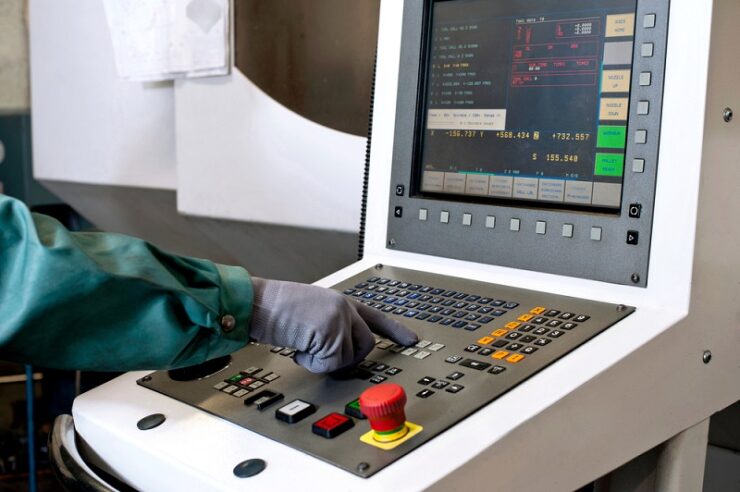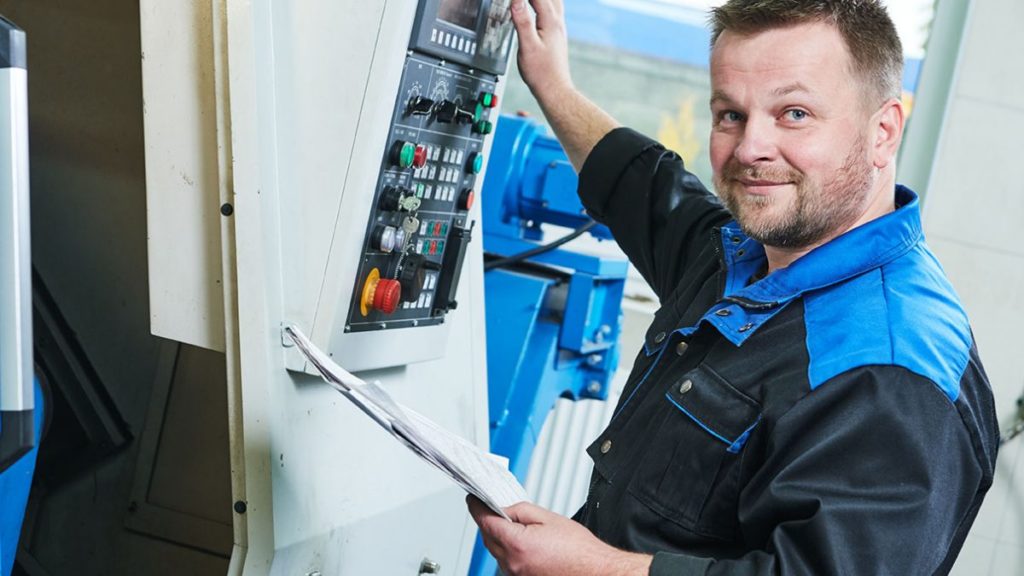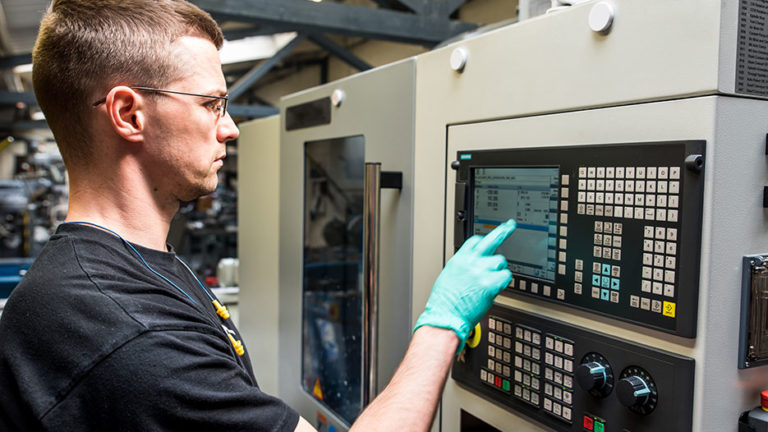Today, computer technology and machines have greatly advanced, so much so that they have slowly started to replace human labor in many major industries, especially in manufacturing. CNC or Computer Numerical Control is one such cutting-edge technology, designed to not only manufacture certain parts but also improve efficiency, speed up the process, lower costs, and save time. In recent years, it has become a popular career choice for many people, however, many also believe that it is enough to simply learn writing programs in order to become a CNC programmer, even though this couldn’t be further from the truth.
Nowadays, CNC machining has become extremely advanced and challenging, but also quite fun for those who are truly interested in the profession. There are several ways one can become a programmer, some of which will get you there faster than others, meaning you should consider all your options before deciding.
So, if you are thinking about becoming one but are unsure of what the job entails or have never heard of Computer Numerical Control before and would like to learn more about it, here are some things to have in mind.
What Are CNC Machines?
There are many different types, but they are all used for cutting out required parts for various businesses, especially in the auto, mining, and food & beverage industries. They are also be used for producing metal, wood, or plastic parts for aerospace and military equipment, the clothing sector, and much more.
The machine’s movements are controlled via a computer system, so they are able to produce as many identical and interchangeable parts as one needs and with great precision too.
What Does a CNC Programmer Do?
Also known as Numerical Tool and Process Control programmers, they are specialists who are in charge of creating and running programs that are used for directing CNC machines. These programs determine the way metal, plastic, and wood will be cut and shaped, as well as how many parts will be produced. They are created based on 3D designs and blueprints and are also the main reason machines can produce parts so precisely.
Is There a Difference Between CNC Programmers and Machinists?

Essentially, there are not a lot of differences between the two. However, machinists do not only complete tasks related to programming but also ones connected with setup and operations. In most companies, you will hardly find a position that includes completing just one task.
This is exactly why getting a proper education is not enough for having a successful career in the field.
How to Become One?
Generally, your chances of employment are higher if you have an Associate’s Degree, although getting a certificate is often acceptable too. There are many community colleges that offer great 2-year CNC programming courses, and it might be the smartest choice to make if you are serious about going into the industry.
Getting a license is not a requirement, but being certified can help you advance in your career quicker, as well as show professionalism and competence. Moreover, many companies also place importance on vocational training and apprenticeship.
On-the-job training is essential for every new employee and it is the best way to gain proper experience. Since there are many different types of machines, you will need to learn how to operate each one. For example, Elephant CNC ones are smaller and more compact as compared to others, so you will need to know how to program them in order to do your job properly.
What Are the Other Requirements?

Skills
There are several other skills that can make you suitable for the position, such as being able to monitor and assess your performance, as well as the performance of others. Complex problem-solving skills and quick critical thinking is also desirable. Being able to monitor operations is important, so you will need to learn how to multitask well.
Traits
These do not necessarily affect your chances of becoming a programmer, but they can certainly be an advantage during an interview. The job can get quite stressful, especially if you are nearing a deadline, so it is better if you know how to handle stressful situations and deal with your emotions.
Since these machines need to produce highly accurate parts, you will need to pay a lot of attention to detail and possess at least some level of critical thinking. Being dependent and persistent is also a big plus.
Knowledge
Education and knowledge are not the same, so besides finishing school, you will also have to learn or, at least, be prepared to learn about mathematics, design, production, processing, engineering, and mechanical. If you prefer working with data and details as opposed to coming up with new ideas, then this job is perfect for you.
What Are the Pros& Cons?

The Advantages
This is a great career choice for people who love solving problems and working in a supportive environment. It is also optimal for individuals who prefer spending their time indoors. Since the industry is growing, you should be able to find a job quickly because there is always a high demand for skilled programmers.
The Disadvantages
On the other hand, if you prefer helping and teaching others, then this profession isn’t for you. Depending on the company you work for, your salary might be below average, and you might need to work more than 40 hours per week.
Conclusion
There are advantages and disadvantages to any profession, and CNC programming is not an exception. Although it does include long working hours and can be a stressful job at times, it is quite rewarding for those who love solving mental problems and working indoors.
It is an occupation that will most likely become very sought after in the near future, yet it is also not that difficult to get into. So, if you are interested in the profession, weigh all of its pros and cons before making a decision. Only then will you be able to truly enjoy working and be completely satisfied with your job.

